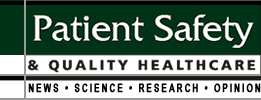 |
 |
 |

September / October 2006

AHRQ
Medication Therapy Management:
A New Opportunity to Optimize Therapeutic Outcomes in Medicare

By Scott R. Smith, PhD; Carolyn M. Clancy, MD
Passage of the Medicare Part D benefit represents a historic opportunity for millions of older Americans to increase their access to prescription drugs. But the anticipated rise in pharmaceutical use also presents significant potential risks for consumers adding new drugs to their treatment regimens.
Seniors previously without drug coverage may start taking prescription drugs for the first time. Some with chronic illnesses may add new drugs to complex and sensitive regimens. Others, due to cognitive decline or various disabilities, may find it difficult to properly take new medications without additional assistance. What kind of assistance should be available to help such patients avoid dangerous drug misadventures?
The law that created the Medicare Part D prescription drug program — the Medicare Modernization Act of 2003 (MMA) — also mandated that participating insurers assist beneficiaries through the establishment of medication therapy management (MTM) programs. The law contains only limited information on how MTMs should be designed. But earlier models of medication management have shown promise:
- In one program, pharmacists educated patients, checked for drug interactions and adverse events, monitored adherence, and communicated with doctors. The model significantly reduced self-reported hospital stays and emergency department visits.

- Another program, aimed at adult asthma patients, utilized a certified asthma educator plus regular long-term follow-up care by pharmacists. The proportion of patients with asthma action plans increased, and patients enrolled in the MTM were six times less likely to visit an emergency department or be hospitalized subsequent to program interventions.

- A third program offered a pharmaceutical case management program (PCM) to Medicaid patients taking 4 or more medications for chronic illnesses. More than 9 in 10 enrolled patients had at least one medication problem before enrollment. The percentage of PCM recipients using high-risk medications decreased significantly compared with those who were eligible but did not enroll.
While those examples and others suggest reason for optimism, much remains unknown about how MTM programs will evolve and what impact they will have on patients' health.
The need for improved medication management is clear. The elderly population is growing. Many Medicare recipients have one or more chronic illnesses that require multiple medications. One survey showed 90% of non-institutionalized seniors used at least one medication per week, and more than 40% used five or more. Some pharmaceuticals commonly prescribed to the elderly, such as warfarin, carry high risk. Studies have established that medication errors among older adults are common and often serious. One study showed more than one in four medication errors among Medicare beneficiaries were preventable.
It is expected that models that are demonstrated to be effective will become the standard when more is understood about how to best design MTM programs. But current federal rules offer only rudimentary guidance. Sponsors of MTM programs must target beneficiaries most in need — those who have multiple chronic conditions, are taking multiple medications, or are likely to incur high drug expenses. Plans cannot charge patients for MTM services, and beneficiary participation is voluntary. Programs are encouraged to address three objectives: to promote the appropriate use of medications and reduce the risk of adverse events through patient education, counseling, and other means; to increase adherence to a drug regimen through medication refill reminders, special packaging, and other means; and to detect adverse drug events and patterns of overuse and underuse of prescription drugs.
The American Pharmacists Association (APhA) and the National Association of Chain Drug Stores (NACDS) Foundation have begun several MTM initiatives that provide resources for pharmacists to implement MTM programs. These organizations go beyond the minimum standard of the Centers for Medicare & Medicaid Services (CMS) and recommend five components aimed at protecting patients from medication mishaps:
- a face-to-face medication therapy review;

- a personal medication record;

- a medication action plan;

- intervention and referral; and

- documentation and follow-up.
Developing a Body of Evidence
Nevertheless, many important questions remain about how to best design and implement MTM programs. It is not required, for example, that pharmacists be the sole or primary purveyors of medication management services. A growing body of evidence has demonstrated that pharmacist involvement in patient care improves many treatment outcomes. But some plans may use nurses to staff call centers or conduct case management to monitor participants for drug-related problems and to help coordinate physician care.
Since MTM is a new service, evidence to inform standards is limited, and few validated performance measures exist to assess effectiveness. A recent systematic review by the Agency for Healthcare Research and Quality (AHRQ) found no conclusive evidence about the optimal program design for chronic disease self-management programs.
Efforts underway by CMS, as well as AHRQ, will establish evidence for building future medication management programs. In the first phase of one CMS-sponsored program, called Medicare Health Support, chronic care management models will be tested through randomized controlled trials involving approximately 180,000 Medicare volunteers. The Secretary of Health and Human Services may expand programs if they meet Medicare spending targets and show improved clinical outcomes and increased beneficiary satisfaction.
Additional evidence will emerge from AHRQ research programs. The Agency's portfolio of pharmaceutical outcomes research will address many critical health care issues, including those related to treatment effectiveness, the cost and quality of care, research and patient management, racial and ethnic disparities in service delivery, and the needs of the elderly. AHRQ has expanded its pharmaceutical outcomes program with four new research centers in its Centers for Education & Research on Therapeutics (CERTs) program, plus a new research program called Developing Evidence to Inform Decisions about Effectiveness (DEcIDE).
Those research efforts will help build an early foundation of evidence for the utilization of medication management. For the MTM concept to mature and achieve its potential to improve the health of older Americans, early MTM programs must be carefully evaluated and future research must target gaps in knowledge. Among the questions not yet resolved:
- To what extent will the MMA increase medication use among the elderly, and to what degree will MTM programs prevent adverse events and other problems?

- What portion of the elderly population will enroll in MTM programs? Who needs the services most? What efforts will be made to enroll those patients?

- Should MTM programs be available to all beneficiaries, or just those with serious and chronic conditions, such as diabetes, asthma, or heart disease?

- Should special efforts be made to deliver MTM services to patients who are homebound, mentally ill, or otherwise disabled?

- What about patients facing language or cultural obstacles?

- Which kinds of health care professionals are best able to deliver MTM services?

- In what settings and at what intervals are MTM services best delivered?
These questions and others underscore the fact that MTM represents an area rich with research opportunities. New knowledge about MTMs will help address the national priority of providing safe, effective pharmaceutical therapies to populations in need.
Scott Smith is director of pharmaceutical outcomes research at the Center for Outcomes and Evidence, Agency for Healthcare Research and Quality. He may be contacted at Scott.Smith@ahrq.hhs.gov.
Carolyn Clancy is director of the Agency for Healthcare Research and Quality. She may be contacted at Carolyn.Clancy@ahrq.hhs.gov.
References
American Pharmacists Association and the National Association of Chain Drug Stores Foundation. (2005). Medication therapy management in community pharmacy practice: Core elements of an MTM service (Version 1.0). Journal of the American Pharmacists Association, 45(5), 573-579.
Bunting, V. A., Cranor, C. W. (2006, March-April). The Asheville Project: Long-term clinical, humanistic, and economic outcomes of a community-based medication therapy management program for asthma. Journal of the American Pharmaceutical Association, 46(2),133-147.
Chrischilles, E. A., Carter, B. L., Lund, B. C., Rubenstein, L. M., Chen-Hardee, S. S., Voelker, M. D., et al. (2004 May-June). Evaluation of the Iowa Medicaid pharmaceutical case management program. Journal of the American Pharmaceutical Association, 44(3), 337-349.
Gurwitz, J. H., Field, T. S., Harrold, L. R., Rothschild, J., Debellis, K., Seger, A. C., et al. (2003). Incidence and preventability of adverse drug events among older persons in the ambulatory setting. Journal of the American Medical Association, 289(9), 1107-1116.
Smith, S. R., Catellier, D. J., Conlisk, E. A., Upchurch, G. A. (2006). Effect on health outcomes of a community-based medication therapy management program for seniors with limited incomes. American Journal of Health-System Pharmacy, 63(4), 372-379., 63,(4), 372-379.
Smith, S. R., & Clancy, C. M. (2006). Medication therapy management programs: Forming a new cornerstone for quality and safety in medicare. American Journal of Medical Quality, 21,(4): 276-279.
|
 |
 |
 |
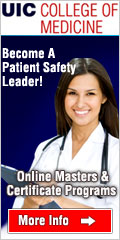

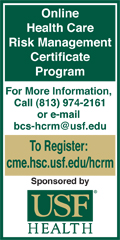

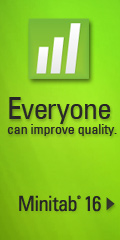

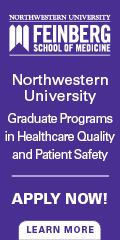

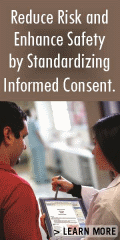

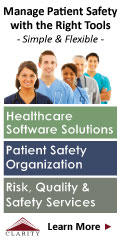

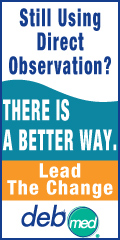






|
 |
